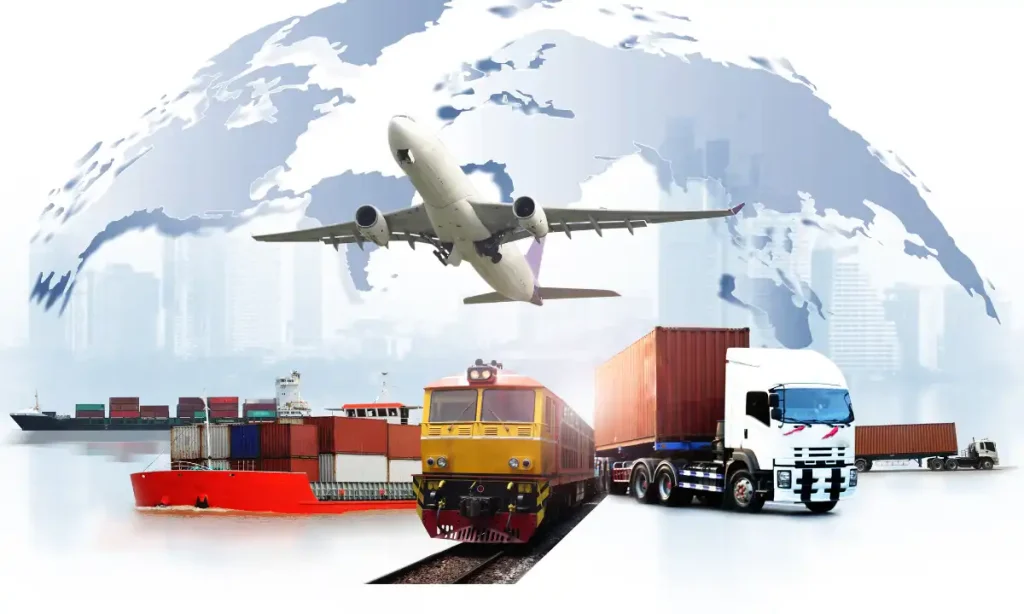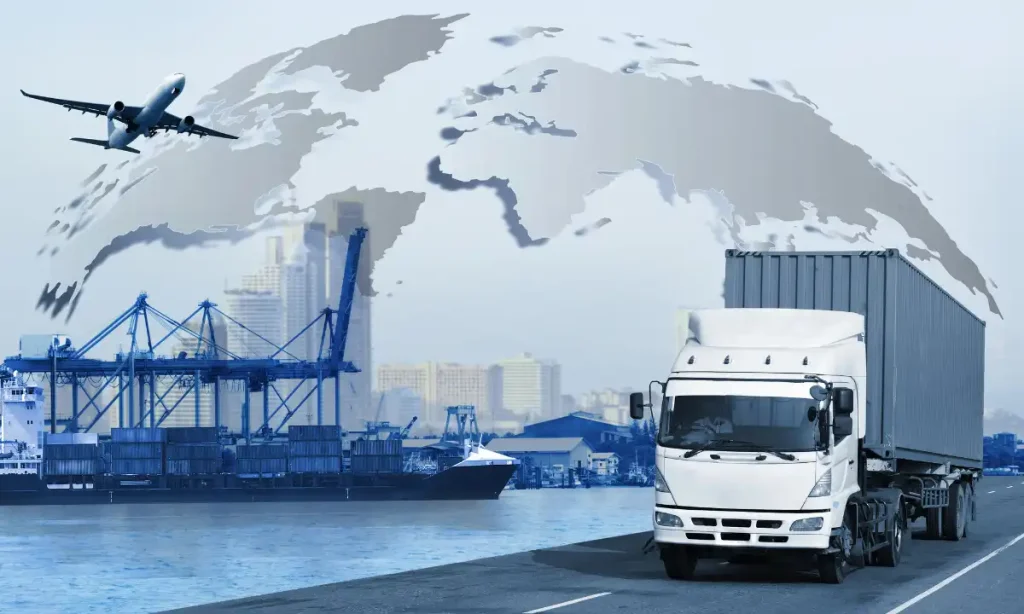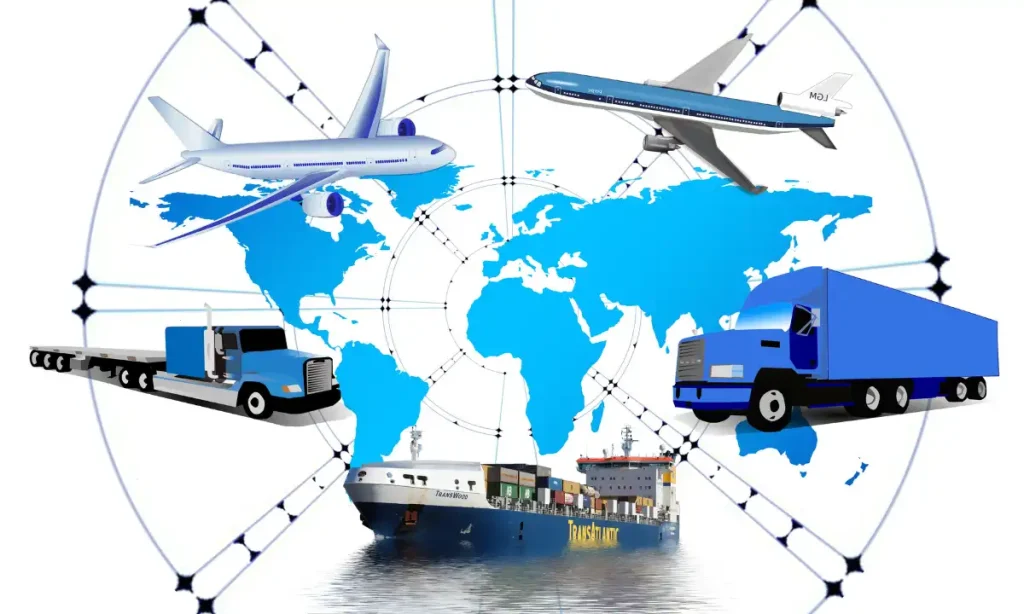Introduction to Logistics in Saudi Arabia
The logistics industry in Saudi Arabia is one of the fastest-growing sectors in the region. As a country with a strategic location at the crossroads of Europe, Asia, and Africa, Saudi Arabia has naturally become a central player in global trade. The logistics industry plays an essential role in ensuring the smooth transportation of goods, enabling trade, and supporting economic growth. With the rise of e-commerce, infrastructure development, and government reforms, logistics in Saudi Arabia is evolving rapidly.
The Role of Logistics Companies in Saudi Arabia’s Economy
Logistics is a vital component of Saudi Arabia’s economy, particularly as the country aims to diversify beyond oil under its Vision 2030 plan. This ambitious initiative places significant emphasis on transforming the kingdom into a global logistics hub. Logistics companies in Saudi Arabia support the movement of goods domestically and internationally, impacting trade, e-commerce, and industrial growth. They are key contributors to creating jobs and enhancing the efficiency of supply chains across various industries.
Types of Logistics Services in Saudi Arabia
Transportation
One of the primary services offered by logistics companies is transportation. This includes road, air, and sea transport, with companies providing local and international shipping services to meet the needs of diverse industries.
Warehousing and Distribution
Efficient warehousing and distribution are crucial for businesses to manage their inventory and ensure timely deliveries. Many logistics companies offer advanced warehousing facilities equipped with modern technology for managing storage and distribution.
Supply Chain Management
Saudi logistics firms provide supply chain management services to optimize the flow of goods from manufacturers to end customers. This service is critical for ensuring seamless operations in various sectors, from retail to manufacturing.
Freight Forwarding
Freight forwarding services are essential for companies needing to move goods across borders. These services handle all aspects of international shipping, including customs clearance, cargo insurance, and transportation.
Top Logistics Companies in Saudi Arabia 2024
| Rank No. | Company Name |
|---|---|
| 1 | Aramex |
| 2 | Saudi Post |
| 3 | Agility |
| 4 | Bahri (National Shipping Company of Saudi Arabia) |
| 5 | Abdullah Al-Othaim Logistics |

1. Aramex
Aramex is a well-established global player in the logistics and transportation industry. The company offers comprehensive logistics solutions, including express courier services, freight forwarding, and e-commerce logistics. Aramex is a preferred choice for businesses and individuals looking for fast and reliable delivery services within Saudi Arabia and globally.
2. Saudi Post
Saudi Post, the national postal service, provides logistics solutions that include parcel deliveries, freight services, and e-commerce support. With a focus on connecting even the most remote areas within the kingdom, Saudi Post plays a critical role in promoting domestic logistics.
3. Agility
Agility is a leading global logistics provider with a strong presence in Saudi Arabia. Known for their expertise in supply chain solutions, warehousing, and freight forwarding, Agility is a key player in facilitating both local and international trade. Their state-of-the-art warehousing and logistics technologies enable businesses to streamline operations and reduce costs.
4. Bahri (National Shipping Company of Saudi Arabia)
Bahri is one of the largest and most well-known logistics companies in the Kingdom. Specializing in transportation and logistics, Bahri operates a massive fleet of vessels to transport oil, chemicals, and general cargo. Their services are essential to maintaining Saudi Arabia’s role as a leading oil exporter.
5. Abdullah Al-Othaim Logistics
Abdullah Al-Othaim Logistics focuses on warehousing and distribution, particularly for the retail and fast-moving consumer goods (FMCG) sectors. Their extensive network of warehouses and logistical expertise make them a go-to choice for businesses seeking efficient and reliable logistics services.
Emerging Trends in Saudi Logistics
The logistics landscape in Saudi Arabia is constantly evolving. Here are some of the key trends shaping the future:
E-commerce Growth and Last-Mile Delivery
With the rapid rise of e-commerce, logistics companies are focusing on last-mile delivery solutions to meet the growing demand for quick and efficient deliveries.
Digital Transformation and Automation
The adoption of digital technologies, including AI and robotics, is transforming logistics operations. Automation of warehouses and real-time tracking of shipments are helping companies streamline processes and improve efficiency.
Green Logistics Initiatives
There is an increasing focus on sustainability in logistics, with companies looking for ways to reduce their carbon footprint. This includes the use of electric vehicles and energy-efficient practices in warehousing and transportation.
Government Support and Reforms
Saudi Arabia’s government is actively supporting the logistics sector as part of its Vision 2030 initiative. This includes investment in infrastructure projects such as new ports, airports, and railways. Additionally, reforms aimed at streamlining trade and reducing regulatory barriers are being implemented to enhance the country’s logistics capabilities.
Logistics Hubs in Saudi Arabia
- Riyadh
As the capital, Riyadh is a major logistics hub, with numerous companies setting up distribution centers to serve the central region of the kingdom. - Jeddah
Located on the Red Sea, Jeddah is a key port city and a vital hub for trade with Europe and Africa. - Dammam
Dammam, in the Eastern Province, serves as a logistics center for industries like oil, gas, and manufacturing due to its proximity to the Arabian Gulf.
Impact of Saudi Arabia’s Geopolitical Position on Logistics
Saudi Arabia’s strategic location makes it a gateway for global trade. Its position between three continents—Europe, Asia, and Africa—offers unparalleled connectivity, allowing it to serve as a key player in regional and international logistics networks.
How Saudi Arabia is Becoming a Global Logistics Hub

Saudi Arabia is positioning itself as a pivotal global logistics hub, driven by substantial investments in infrastructure and strategic partnerships. The Kingdom’s geographic location at the crossroads of Europe, Asia, and Africa gives it a natural advantage, allowing it to serve as a critical link in international trade routes. As part of its Vision 2030 initiative, the Saudi government is actively expanding and modernizing its logistics capabilities, including:
1. Port Expansions
The Kingdom is home to several major seaports, such as Jeddah Islamic Port and King Abdulaziz Port, which are undergoing significant upgrades to increase capacity and efficiency. These ports handle a vast amount of the country’s imports and exports, and improvements will enable them to accommodate larger container ships and streamline shipping processes.
2. Airport Modernization
Air cargo is another essential component of Saudi Arabia’s logistics sector. Airports like King Khalid International Airport in Riyadh and King Fahd International Airport in Dammam are being expanded to enhance their cargo handling capabilities. These expansions ensure that Saudi Arabia remains a key player in global air freight, especially for time-sensitive goods.
3. Developing Rail Networks
The Saudi Landbridge Project, a major railway development, is set to connect the eastern and western parts of the country, linking Dammam on the Gulf coast to Jeddah on the Red Sea. This rail line will significantly reduce shipping times for goods moving between Asia, Europe, and the Middle East, making Saudi Arabia a more competitive logistics hub.
4. Strategic Partnerships
Saudi Arabia is also forging partnerships with leading global logistics companies, including DHL, UPS, and Maersk, to boost its logistics capabilities. These collaborations are aimed at improving operational efficiency, introducing innovative technologies, and expanding the Kingdom’s global reach.
The Future of Logistics in Saudi Arabia
The future of Saudi Arabia’s logistics industry looks incredibly promising as it integrates advanced technologies and modernizes its infrastructure. Here are some key trends shaping the future:
Autonomous Vehicles
The introduction of autonomous vehicles is expected to revolutionize land transportation, enabling faster and more efficient deliveries. These vehicles, powered by artificial intelligence, will reduce labor costs and improve safety on the roads.
Drone Deliveries
As part of the country’s push toward innovation, drone deliveries are likely to become a staple in Saudi logistics. Drones will be particularly useful for last-mile deliveries in remote areas, cutting down on delivery times and costs.
Smart Warehousing
Smart warehousing solutions are also being embraced, with automation technologies such as robotics and AI-powered inventory management systems making warehousing operations more efficient. These systems will enable real-time tracking of goods, optimizing storage space and reducing the risk of errors.
The Importance of Sustainability in Logistics
As the global focus on environmental sustainability intensifies, Saudi Arabia is committed to developing green logistics solutions. Logistics companies in the Kingdom are increasingly adopting eco-friendly practices to minimize their carbon footprint and promote sustainable operations. Key sustainability trends include:
1. Electric Delivery Vehicles
Many logistics companies in Saudi Arabia are investing in electric delivery vehicles to reduce emissions. These vehicles not only contribute to cleaner air but also help in cutting down operational costs by relying on renewable energy sources.
2. Solar-Powered Warehouses
Warehouses are significant energy consumers. In response, many logistics companies are turning to solar power to run their operations. Using renewable energy for lighting, heating, and cooling helps reduce greenhouse gas emissions and aligns with the Kingdom’s broader goal of sustainability.
3. Recycling and Waste Management
Logistics companies are adopting more responsible waste management practices by encouraging recycling and reducing packaging waste. Initiatives such as eco-friendly packaging and recycling programs are becoming increasingly popular within the industry.
Logistics Support for the Oil and Gas Sector
The oil and gas sector remains the cornerstone of Saudi Arabia’s economy, and logistics companies play a vital role in supporting this industry. Specialized logistics services are essential for transporting the heavy equipment, machinery, and chemicals required for oil and gas production. These services include:
Heavy-Lift Transportation
Given the size and weight of oil and gas equipment, logistics companies use heavy-lift transportation vehicles, including specialized trucks and cranes, to move these items safely and efficiently to remote desert locations or offshore drilling sites.
Hazardous Materials Handling
The transportation of hazardous materials, such as chemicals and fuels, requires specialized knowledge and equipment. Logistics companies in Saudi Arabia are equipped with state-of-the-art safety protocols to ensure the safe handling and transportation of these dangerous goods.
The Role of Logistics in Mega Projects
Saudi Arabia’s ambitious mega projects like Neom, The Red Sea Project, and Qiddiya are designed to diversify the economy and reduce dependence on oil. These large-scale projects, covering tourism, entertainment, and smart city development, rely heavily on efficient logistics operations to ensure their timely completion.
Neom
Neom is a futuristic city that will require an enormous volume of construction materials and resources. Logistics companies are tasked with managing the flow of goods needed for the project, from initial infrastructure materials to supplies for smart technology.
The Red Sea Project
Focused on luxury tourism, The Red Sea Project involves the construction of resorts, airports, and other infrastructure on the Kingdom’s western coast. Efficient supply chains are critical to ensure that all construction materials, equipment, and labor reach the remote location on time.
Qiddiya
Qiddiya, the Kingdom’s entertainment megaproject, will also require extensive logistics support. Everything from construction materials to high-tech equipment for theme parks and sports venues must be transported to the site, making logistics a key player in its success.
Conclusion
Logistics companies in Saudi Arabia are the backbone of the kingdom’s trade and economic diversification efforts. With continued investment and technological advancements, the future of logistics in the region looks bright, ensuring Saudi Arabia’s position as a global logistics hub.
FAQs
- What is the role of logistics companies in Saudi Arabia’s Vision 2030?
Logistics companies are vital to Saudi Arabia’s Vision 2030, as they support the country’s transition into a global trade and logistics hub. By improving infrastructure, streamlining operations, and fostering international partnerships, these companies contribute to economic diversification and reduce reliance on oil revenue. - Which are the top logistics hubs in Saudi Arabia?
The key logistics hubs in Saudi Arabia include Riyadh, Jeddah, and Dammam. These cities are strategically important due to their proximity to major ports, airports, and industrial centers, enabling smooth trade and transportation flows. - What are the challenges faced by logistics companies in Saudi Arabia?
Logistics companies face challenges such as infrastructure limitations, regulatory hurdles related to customs and trade, and a shortage of skilled labor. These issues can slow down operations and increase costs, but ongoing government reforms aim to alleviate these challenges. - How are logistics companies adapting to the rise of e-commerce?
With the boom in e-commerce, logistics companies in Saudi Arabia are increasingly focusing on last-mile delivery solutions and leveraging technology to meet growing demand. Investments in digital platforms, faster delivery networks, and enhanced warehousing are helping companies adapt to this change. - What is green logistics, and why is it important in Saudi Arabia?
Green logistics refers to efforts to reduce the environmental impact of logistics operations, such as using electric vehicles and optimizing routes to lower fuel consumption. In Saudi Arabia, green logistics is becoming important as the country strives to balance industrial growth with environmental sustainability.


